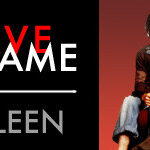Is the music created by figures like Farley, also known as Papa Razzi, a reflection of a culture deeply influenced by algorithmic platforms, or is it something more unique? This question leads us to consider whether his work is merely digital noise, akin to spam, or if it possesses artistic merit, perhaps even aligning with the spirit of outsider art. One might wonder if Farley is just the creator of novelty tracks, or if he shares more in common with someone like Steve Keene, the prolific Brooklyn painter celebrated for his vast body of work and recognized within art circles. Intriguingly, Farley himself has even penned a song about Steve Keene, featured on his album aptly titled “I Am Not Wasting My Life,” suggesting a similar introspection about his own creative endeavors.
When encountering Farley in person, as I did in Danvers one December, his genuine and open nature immediately becomes apparent. With his full head of hair, prominent cheekbones, and a warm, approachable demeanor reminiscent of Kyle Chandler, he projects an image that one online reviewer aptly described as “youth-pastory.” His consistent wardrobe choice, a fleece-lined brown hoodie observed across his social media, seems to be his year-round outerwear, enduring even the New England winters during his frequent 15-to-20 mile walks. He comes across as someone who eagerly embraces warmer weather, likely switching to shorts at the first hint of spring. True to form, he arrived at our meeting an hour ahead of schedule, a testament to his punctuality.
While Papa Razzi’s artistic style might initially be perceived as lighthearted or even unconventional, Farley clarifies that it’s a product of pure, unadulterated creativity. He maintains a lifestyle devoid of alcohol and drugs, and describes his diet as remarkably simple, similar to that of a child. During a meal at Dube’s Seafood in Salem, a restaurant famous for its fried clams, he opted for chicken nuggets, which he then generously seasoned with an excessive amount of salt and pepper, even removing the shaker top for maximum application. In his car, the soundtrack consisted of classic rock artists like the Rolling Stones, the Replacements, and Tom Waits. He jokingly mentioned the “mammoth accomplishment of self-control” it took for him not to play his own music, despite the irony that his work was precisely what I was there to explore.
Farley’s driving force throughout his life has been a desire to create and share his creations with the world. After his studies at Providence College, he purposefully relocated to Manchester, New Hampshire, seeking solitude to focus on his art. “If you know people, they want you to go to cookouts,” he explained, emphasizing his dedication to his craft over social engagements. He views any downtime, such as attending parties or watching sports, as lost opportunities for songwriting or scriptwriting. He never considered conventional paths into the entertainment industry, like film school, instead choosing a job at a group home. This allowed him to work a condensed 40-hour week over three days, freeing up the remaining four for his artistic pursuits. In his early efforts to distribute his music, he would leave Moes Haven CDs in public places, hoping to gain listeners. He even discreetly placed them in record store stacks, acting as a reverse shoplifter. He would also offer rides to the airport, using the opportunity to share his music with unsuspecting passengers.
Alt text: Musician Farley, known as Papa Razzi, wearing his signature brown fleece hoodie, a staple in his New England wardrobe, reflecting his down-to-earth personality.

